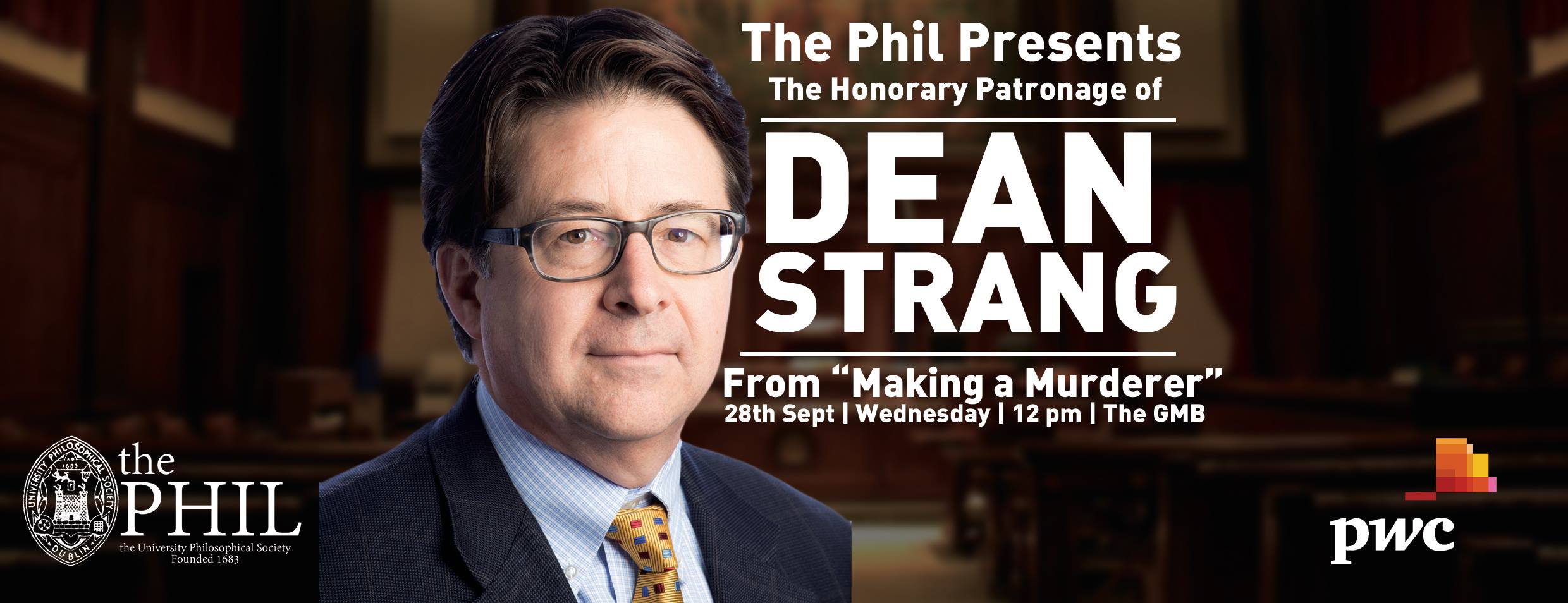Dean Strang, an American lawyer who came to fame following the success of the Netflix series ‘Making a Murder’, today received the gold medal of Honorary Patronage from the Philosophical Society. Strang was defence attorney for the accused Steven Avery, whose trial lasted years and has caused much public controversy since the series was aired. Strang has also published a book dealing with the struggle of administering criminal justice during times of security threats, which the US grapples with to this day.
The President of the Phil, Matthew Nuding, posed a number of questions to Strang before questions were opened up to the floor. Given the themes of Making a Murder, which deal with the inadequacies of the American criminal justice system, including the problems of public opinion in high profile case impacting the jury, and judicial bias, Nuding chose to open on this theme. He asked strang whether the presumption of innocence principle (the idea that the accused is innocent until proven guilty) can still exist in an age where social media is so pervasive and can impact the jurors opinions. Perhaps juries should be done away with.
This is one of the main areas of interest for Strang, as he believes that we need to be suspicious of removing apparatus for the public to participate in the justice system. The fault lies not with the use of social media, but rather with judges and lawyers whose duty it is to communicate better with jurors and connect with their deeper values. It is part of the foundational principles of adversarial legal systems. When security threats are used to justify ‘cutting out the role of the citizen in superintending what the sovereign does’ Strang argues we need to be ‘robustly sceptical’. We are being cut out of a ‘fact triangle’.
Strang went on to discuss the main areas where he sees the need for reform in the US legal system. Making a Murder documented the struggles defendants from lower income brackets can face against the state. Stang outlined how underfunded public defense is in The US, and called for a change as the vast majority of US citizens are too poor to take the first step and hire a lawyer if they are accused.
There have been significant changes to Strangs life since the airing of Making a Murder which he had no expectations of. When asked by the audience Stang confirmed he was still in contact with the Avery family sometimes giving them counsel. He acknowledged that the guilty verdict had been hard-hitting, as he had felt the case had gone well. He also acknowledged new evidence may come to light due to the availability of new scientific tests which may result in a retrial for Avery. Strang also discuusssed the pressures of being a defense lawyer.
Every guilty verdict is hard, and ‘defending the guilty is easy, but defending the innocent is hard’. You begin to take seriously your client’s case, and given the high conviction rates in the US, it is a personally challenging job. Strang left us with a very thoughtful insight into life as a criminal lawyer, saying ‘the situations that produce criminal charges – every one of them is a snapshot of human feelings, and if you look hard enough, human strength’. The ‘human messiness’ of criminal law and the opportunity to side with the underdog against the state is what engages Strang.







